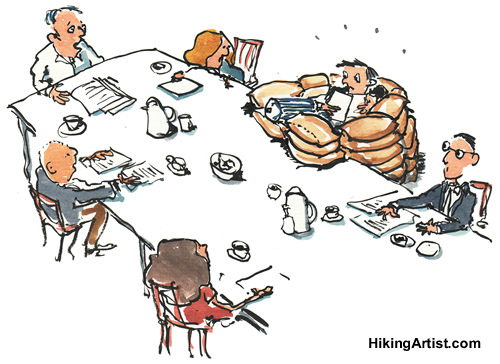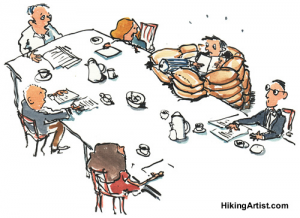
The Publishing War Front-lines
 The Publishing War Front-lines
The Publishing War Front-lines
Late last month, Barnes and Nobles boycott of books published by Amazon, soon followed by other publishers and Indies’ groups made the front pages about the current conflict on the fast changing publishing world.
Yet this is only one of the many front-lines of the Publishing War that is currently growing and is manifold.
Here are the main existing front-lines:
- Exclusivity
- Book Lending
- Online vs. physical presence
- eReaders hardware
- Piracy and Intellectual Property
The two hot front-lines in the past 2 weeks were exclusivity and book lending, so let’s have a closer look at these two issues now and eat the other ones on Wednesday.
1. Exclusivity
On January 31st, Barnes & Nobles, the giant book retailer, declared that it would not stock Amazon published books in its store showrooms anymore. This movement, soon joined by other major book retailers such as Book a Million and Indigo Books, apparently came as a reaction to Amazon KDP Select Terms & Condition that require all authors entering that program to grant exclusivity on the participating books to Amazon. KDP Select is a sub-section of Amazon publishing department KDP (Kindle Direct Publishing) that requires participating books to agree to include their book in Amazon lending program for Prime users. This exclusivity does not cover the books published by KDP that do not participate in the KDP Select program.
This means that Amazon’s boycott covers the majority of books in KDP that are not covered by and exclusivity clause under Amazon terms.
However, the growing number of publishers and distributors network that are following B&N’s lead in boycotting Amazon means that Amazon is getting near-exclusivity on these books without ever having to ask for it.
For authors already published through KDP, this means they have been forcibly volunteered by B&N and the other boycotters to fight on Amazon side, as their books will effectively be exclusively available through Amazon and minor retail places, though they never signed for that.
On February 8th, Indie Commerce, the American Booksellers Association’s (ABA) for-profit subsidiary, began removing all Amazon titles from its database as part of its participation to the boycott. They cannot legally prevent their members from distributing KDP published books, but in practice, that means they are effectively banning all authors who joined Amazon KDP prior to the existence of even the idea of the boycott.
Though Author’s Guild is supposed to represent all authors, they lent their support to the boycott in a post on their website dated February 16.
The logic behind a major book retailer decision to ban a publisher from its shelves is difficult to understand at first glance, but might become clearer if one looks at the rumored threat posed by Amazon in the physical retailing world. (More about that on Wednesday)
2. Book Lending
Book lending in the digital world has different implications than physical book lending. A physical book has a limited shelf-life and needs to be replaced when worn out, so publishers selling books to public libraries knew that they would have to replace the physical object every now and then.
Digital books, however, never wear out, so public libraries would only have to buy then once and could lend them to their patrons an unlimited number of times.
This is what pushed Harper Collins to declare last March that it would only allow 26 lending of each digital book through a public library before they would have to buy a new copy.
Last November, Penguin took a more drastic move by pulling its books out of Overdrive’s catalog. Overdrive is the main supplier of digital book to public libraries. The reason invoked for that move was that Overdrive had granted Amazon the right to distribute its books through Amazon Kindle Library though it had not been contractually authorized to do so.
Nowadays, Penguin has been followed by MacMillan Publishing, Simon & Schuster, Brilliance Audio and Hachette Book Group.
So, though less publicized than B&N’s boycott of Amazon, the book lending war is also raging.